SECOND
CHANCE
// By Melanie A. Hahn
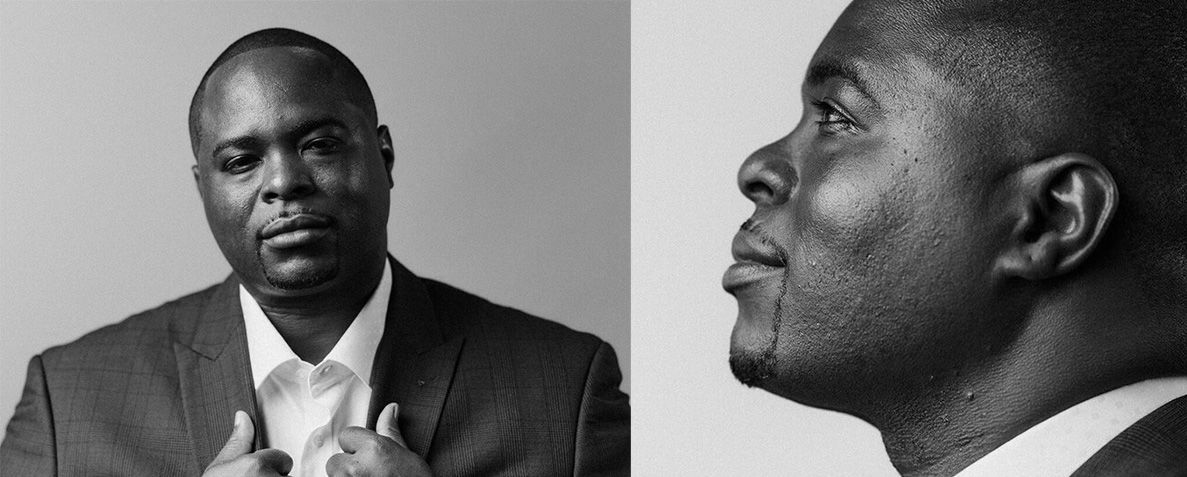
It was 11:45 p.m.
A young Purdue senior sat on his bunk, poring over his books for the next day’s test. He’d had little time to study between work and classes that day, so it would be another late evening. But he fought the urge to give in and go to sleep. He wasn’t about to risk his current A+ average with a lesser grade.
And the urge to sleep was the least of his challenges. This young senior’s bed wasn’t a loft in a residence hall or a student apartment—it was a bunk in a room with 40–60 mostly older men who weren’t in college. And the young student wasn’t dressed in sweats or jeans as he sat with his books surrounding him. He was in a uniform like the other men, all of whom were serving their time in the county’s work-release program.
In fact, the young man wasn’t just studying for a test the next day. He was working on a plan to change his life.
His name was Donte Wilburn, and he was on a journey toward something even he couldn’t see quite clearly yet—but he was determined to get there.
FAST ROUTE TO DANGER
Wilburn (T’05) grew up in Lafayette, Indiana. When he was a junior in high school, his mother asked him what he wanted to do with his life.
“All I could picture was getting a corporate job somewhere in downtown Chicago in a high-rise building,” he recalls. “I realized the only way to do that was to go to college.”
Though none of Wilburn’s close friends attended college, a friend’s older brother was enrolled in organizational leadership and supervision in what was then Purdue’s College of Technology (now the Purdue Polytechnic Institute).
“This sounds crazy now, but after he told me about it, I thought it sounded good, and I just copied what he was doing,” he says.
Wilburn’s hard-working parents had sacrificed much to provide for their family, including paying for all of his college tuition. However, he was impatient for quick success.
“I was a typical student,” he says. “I had no money to eat at the places I wanted or to drive the car I wanted. I tried to tell myself, ‘It’s four years, and you’ve gotta struggle, but in the future, you’ll be prosperous.’ But I didn’t want to wait. So, I tried to take a shortcut.”
The shortcut was selling marijuana, which Wilburn had learned how to do in high school. He’d tried giving it up several times, but the quick money was too tempting. During college, he found himself turning to it again.
Unfortunately, this lifestyle brought Wilburn into the company of people who didn’t care about his future—or his life.
During a drug deal when he was a junior at Purdue, he found himself targeted for murder. Wilburn escaped physically unhurt, but the incident led to his eventual arrest. That, coupled with the knowledge that he had almost thrown his life away, motivated him to make some different choices.
Wilburn related this story in his 2023 book Born Hungry: You Were Made for More. To get out of his terrible situation, he wrote, he decided to do the opposite of everything he’d done to get himself there.
“I REALIZED I NEEDED TO SERVE OTHERS AND NOT JUST MYSELF TO SUCCEED.”
He had been too proud to ask for help in the past, but Wilburn resolved to seek advice from anyone who had experienced success: his parents; his girlfriend, Tesha (whom he later married); community and business leaders; and fellow Boilermakers.
“Work release was not the best situation to succeed in college. I would come into class tired and distracted. But I talked to one of my instructors—a young African American man—and he came alongside me and encouraged me to fight through and come out successful on the other side. He kept me dialed in.”
Wilburn also began listening to audiobooks to learn everything he could. These taught him essential aspects of a prosperity-focused mindset. One of the most important was the Bible. The deeper spiritual focus that arose from this became crucial to turning his life around.
“I realized I needed to serve others and not just myself to succeed,” he says.
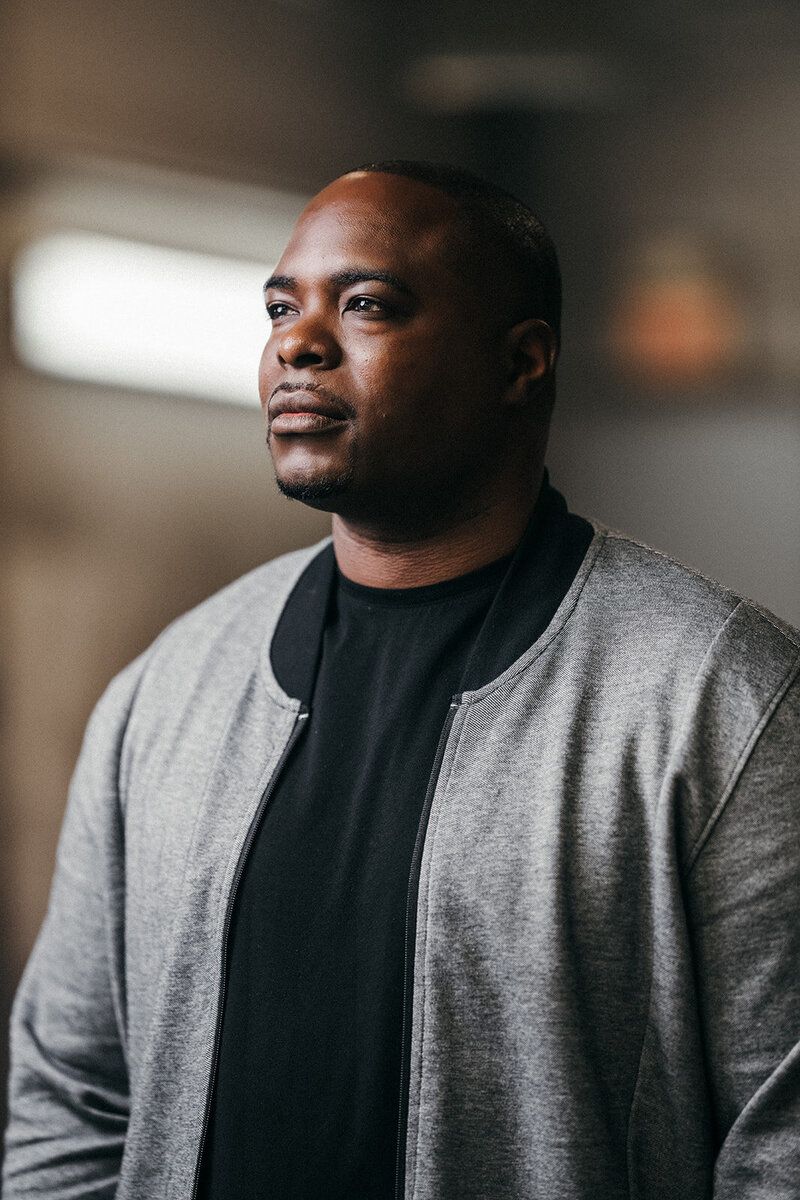
FAST ROUTE TO DANGER
Wilburn (T’05) grew up in Lafayette, Indiana. When he was a junior in high school, his mother asked him what he wanted to do with his life.
“All I could picture was getting a corporate job somewhere in downtown Chicago in a high-rise building,” he recalls. “I realized the only way to do that was to go to college.”
Though none of Wilburn’s close friends attended college, a friend’s older brother was enrolled in organizational leadership and supervision in what was then Purdue’s College of Technology (now the Purdue Polytechnic Institute).
“This sounds crazy now, but after he told me about it, I thought it sounded good, and I just copied what he was doing,” he says.
Wilburn’s hard-working parents had sacrificed much to provide for their family, including paying for all of his college tuition. However, he was impatient for quick success.
“I was a typical student,” he says. “I had no money to eat at the places I wanted or to drive the car I wanted. I tried to tell myself, ‘It’s four years, and you’ve gotta struggle, but in the future, you’ll be prosperous.’ But I didn’t want to wait. So, I tried to take a shortcut.”
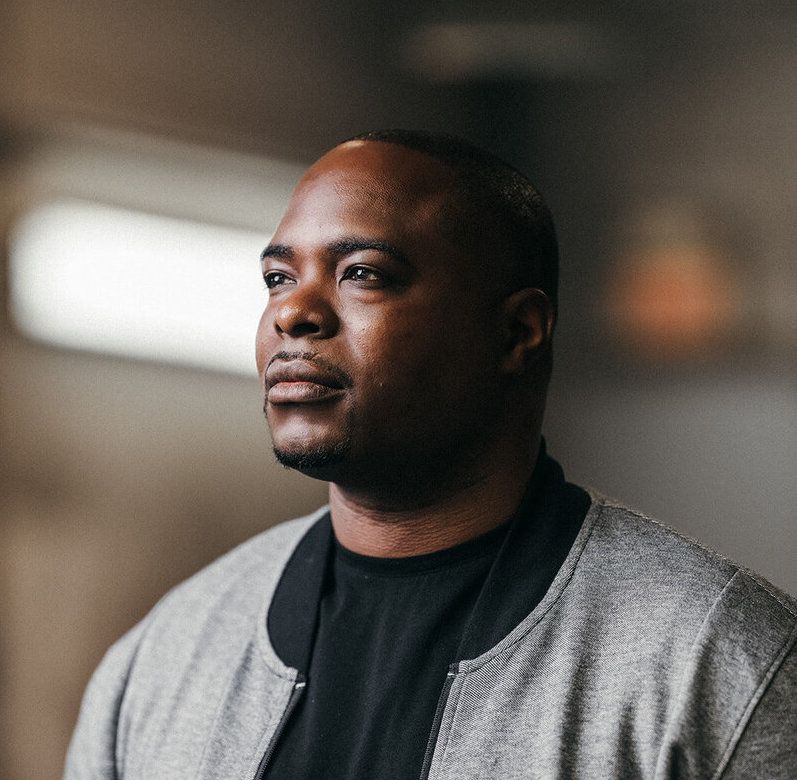
The shortcut was selling marijuana, which Wilburn had learned how to do in high school. He’d tried giving it up several times, but the quick money was too tempting. During college, he found himself turning to it again.
Unfortunately, this lifestyle brought Wilburn into the company of people who didn’t care about his future—or his life.
During a drug deal when he was a junior at Purdue, he found himself targeted for murder. Wilburn escaped physically unhurt, but the incident led to his eventual arrest. That, coupled with the knowledge that he had almost thrown his life away, motivated him to make some different choices.
Wilburn related this story in his 2023 book Born Hungry: You Were Made for More. To get out of his terrible situation, he wrote, he decided to do the opposite of everything he’d done to get himself there.
He had been too proud to ask for help in the past, but Wilburn resolved to seek advice from anyone who had succeeded in their lives: his parents; his girlfriend, Tesha (whom he later married); community and business leaders; and fellow Boilermakers.
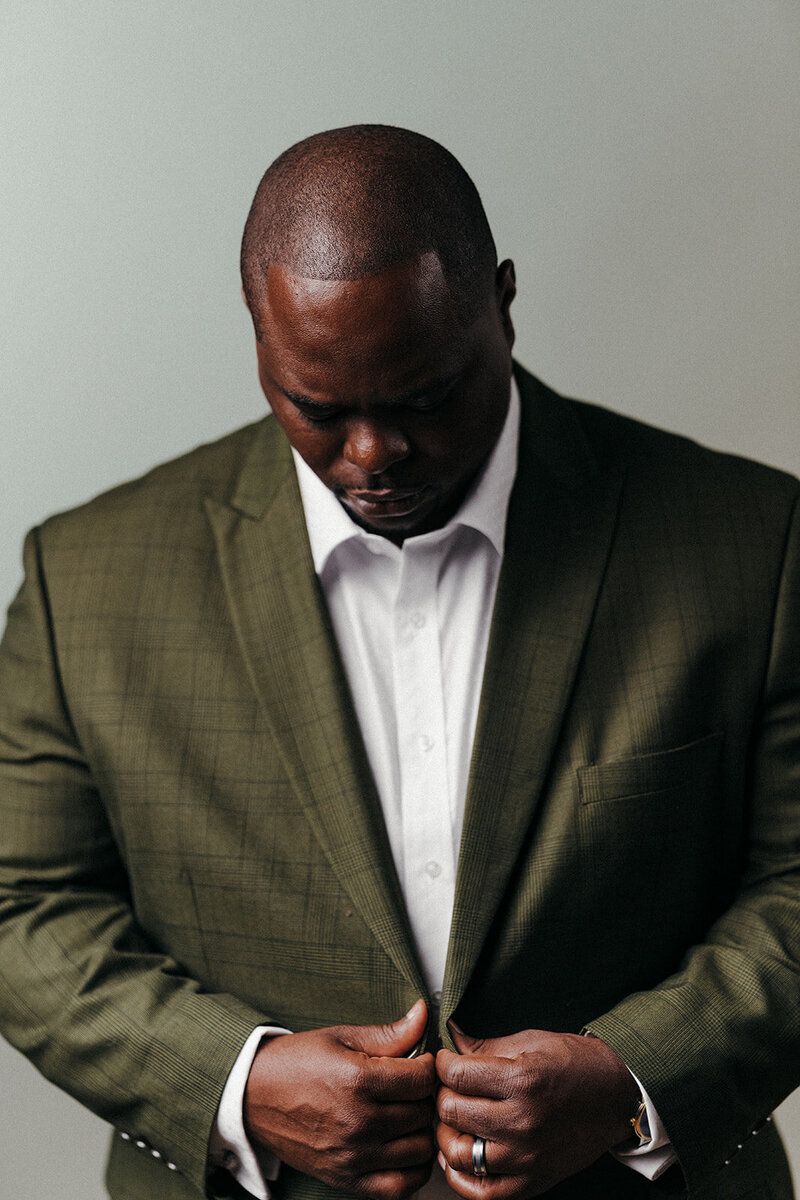
“Work release was not the best situation to succeed in college. I would come into class tired and distracted. But I talked to one of my instructors—a young African American man—and he came alongside me and encouraged me to fight through and come out successful on the other side. He kept me dialed in.”
Wilburn also began listening to audiobooks to learn everything he could. These taught him essential aspects of a prosperity-focused mindset. One of the most important was the Bible. The deeper spiritual focus that arose from this became crucial to turning his life around.
“I realized I needed to serve others and not just myself to succeed,” he says.
By surrounding himself with the right people, making better choices, and working harder than he ever had in his life, Wilburn not only graduated, he made the Dean’s List.

FINDING SUCCESS
By surrounding himself with the right people, making better choices, and working harder than he ever had in his life, Wilburn not only graduated, he made the Dean’s List.
Once out of school, he put in years of hard work and commitment to achieve success. He leveraged his experience in and dedication to the auto detailing industry to start his own automotive detail and accessories company, Premiere Unlimited.
As an entrepreneur doing what he loves, Wilburn is far happier than he would have been in the generic corporate job from his original vision.
“When I followed in the footsteps of my friend’s brother, I didn’t know where it would lead,” he says. “But everything I learned at Purdue has impacted me daily. Just the other day, I was building an organizational structure, opening a new location, and figuring out who will staff it—all things I learned how to do at Purdue.”
Wilburn is working to expand Premiere Unlimited, currently a $2.2 million company, with locations across Indiana, Ohio, and Florida. Eventually, he hopes to develop it into a franchise.
FINDING SUCCESS
Once out of school, Wilburn put in years of hard work and commitment to achieve success. He leveraged his experience in and dedication to the auto detailing industry to start his own automotive detail and accessories company, Premiere Unlimited.
As an entrepreneur doing what he loves, Wilburn is far happier than he would have been in the generic corporate job from his original vision.
“When I followed in the footsteps of my friend’s brother, I didn’t know where it would lead,” he says. “But everything I learned at Purdue has impacted me daily. Just the other day, I was building an organizational structure, opening a new location, and figuring out who will staff it—all things I learned how to do at Purdue.”
Wilburn is working to expand Premiere Unlimited, currently a $2.2 million company, with locations across Indiana, Ohio, and Florida. Eventually, he hopes to develop it into a franchise.
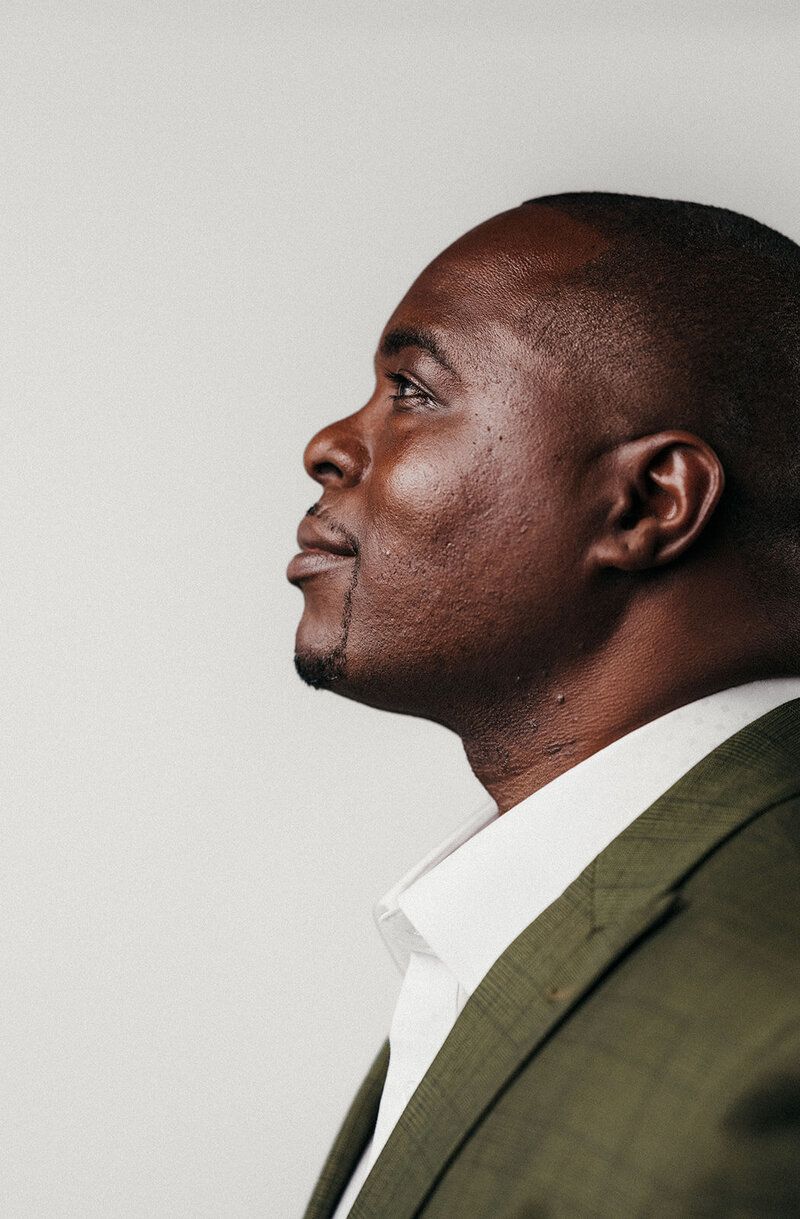
COMMITMENT TO YOUNG PEOPLE
Recently, Wilburn purchased and expanded Legacy Sports Park, a 35-plus-acre youth sports facility. He often volunteers his time, particularly with at-risk young people. His book sprang from a desire to teach them how to stay on the right path and avoid pitfalls.
Among other outreach endeavors, Wilburn frequently returns to Purdue as a guest speaker for two entrepreneurship courses, ENTR 200 and 480.
“EVERYTHING I LEARNED AT PURDUE HAS IMPACTED ME DAILY.”
According to Greg Finch (A’80), he and his ENTR 480 coinstructor, Susan Woods, invite speakers to talk both about their successes and their failures.
“I believe you can learn more from an entrepreneur’s failures than their successes,” Finch says. With this in mind, Purdue has started providing Born Hungry to students as part of the course.
Wilburn enjoys connecting with the students. “I feel like it’s a chance to talk to my 19-year-old self,” he says. “I see their eyes light up as they realize they truly can achieve their dreams. One young woman came up to me with tears in her eyes and told me she was so happy to be able to apply what she learned in my book to get more confidence in her life. I felt blessed to hear that. This is exactly what the book is for.”
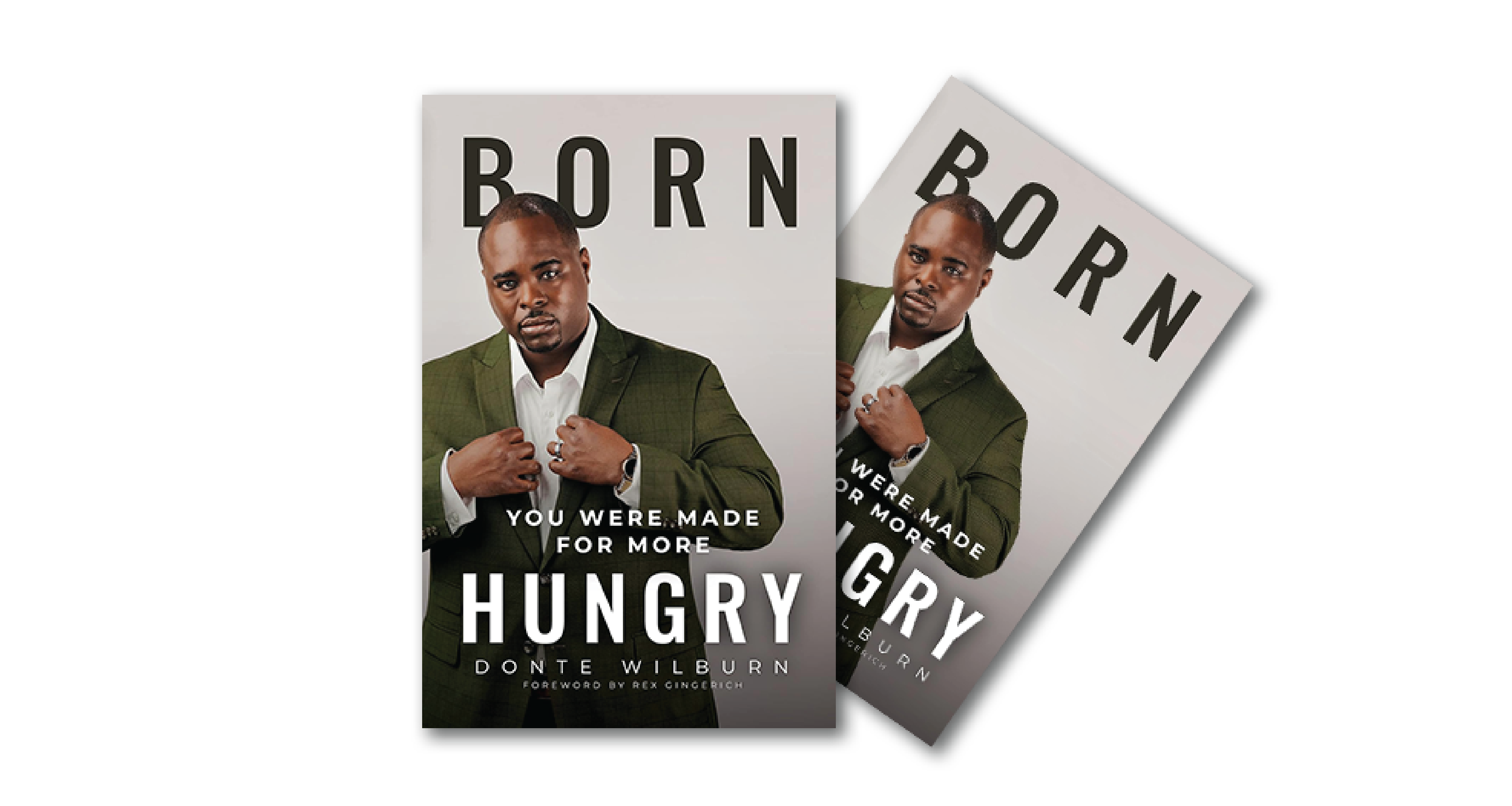
“Donte is a real human being who shares his surreal experiences with humility and total self-accountability,” Finch says. “He speaks deeply from the heart. His message is often visceral to students who are experiencing their own personal challenges—and those students come forward not just to shake Donte’s hand but to embrace him. They are amazed, saying, ‘How can this person be so real, standing right here, with such a positive attitude after everything that kept him from succeeding?’ Donte inspires hope and humanity in all of us.”
Photos courtesy of Donte Wilburn.
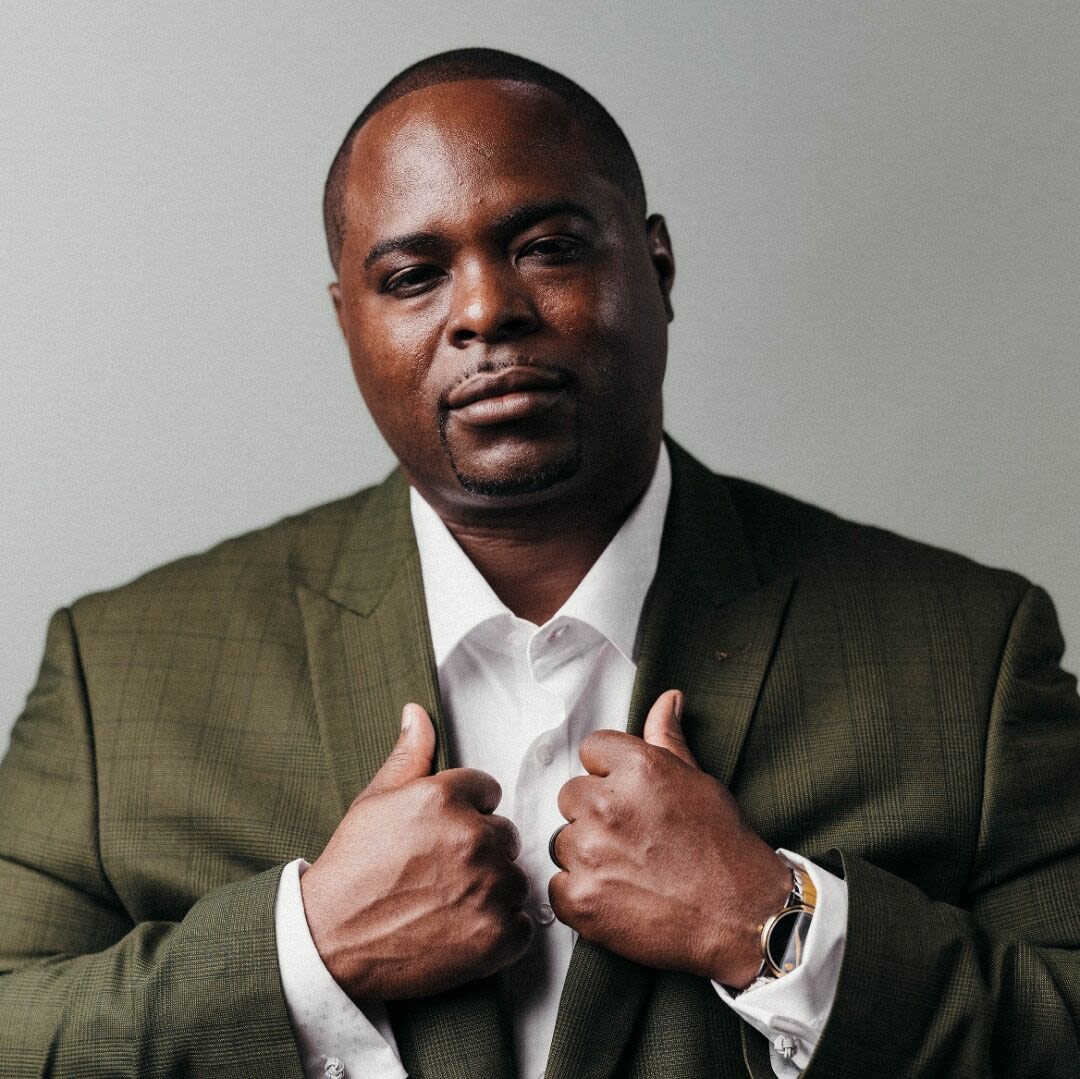
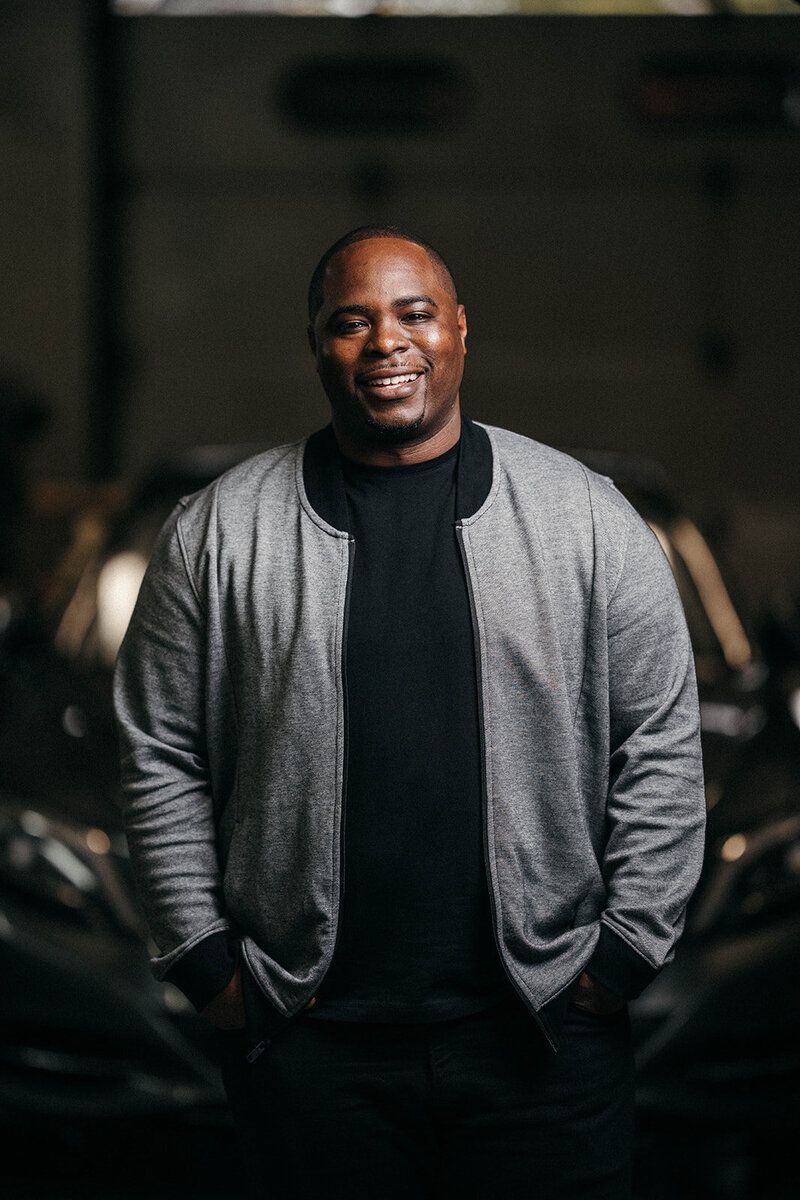
COMMITMENT
TO YOUNG PEOPLE
Recently, Wilburn purchased and expanded Legacy Sports Park, a 35-plus-acre youth sports facility. He often volunteers his time, particularly with at-risk young people. His book sprang from a desire to teach them how to stay on the right path and avoid pitfalls.
Among other outreach endeavors, Wilburn frequently returns to Purdue as a guest speaker for two entrepreneurship courses, ENTR 200 and 480.
“EVERYTHING I LEARNED AT PURDUE HAS IMPACTED ME DAILY.”
According to Greg Finch (A’80), he and his ENTR 480 coinstructor, Susan Woods, invite speakers to talk both about their successes and their failures.
“I believe you can learn more from an entrepreneur’s failures than their successes,” Finch says. With this in mind, Purdue has started providing Born Hungry to students as part of the course.
Wilburn enjoys connecting with the students. “I feel like it’s a chance to talk to my 19-year-old self,” he says. “I see their eyes light up as they realize they truly can achieve their dreams. One young woman came up to me with tears in her eyes and told me she was so happy to be able to apply what she learned in my book to get more confidence in her life. I felt blessed to hear that. This is exactly what the book is for.”

“Donte is a real human being who shares his surreal experiences with humility and total self-accountability,” Finch says. “He speaks deeply from the heart. His message is often visceral to students who are experiencing their own personal challenges—and those students come forward not just to shake Donte’s hand but to embrace him. They are amazed, saying, ‘How can this person be so real, standing right here, with such a positive attitude after everything that kept him from succeeding?’ Donte inspires hope and humanity in all of us.”
Photos courtesy of Donte Wilburn.
